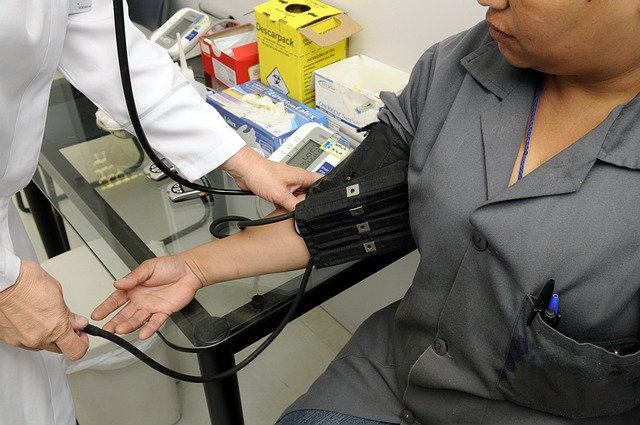Explore Key Early Warning Signs of Amyloidosis and What They Could Mean
Amyloidosis is a rare but serious condition where abnormal proteins called amyloids build up in organs and tissues throughout the body. These protein deposits can interfere with normal organ function, potentially affecting the heart, kidneys, liver, spleen, nervous system, and digestive tract. Recognizing the early warning signs of amyloidosis is crucial for timely diagnosis and treatment, as symptoms often develop gradually and can mimic other common health conditions.

What is Amyloidosis?
Amyloidosis occurs when proteins fold incorrectly and form amyloid fibrils that accumulate in various organs. There are several types of amyloidosis, with AL (light chain) amyloidosis being the most common form in developed countries. This condition affects approximately 4,000 people annually in the United States. The protein deposits can disrupt normal tissue structure and function, leading to organ damage that may become irreversible if left untreated. Understanding this condition helps patients and healthcare providers work together to identify symptoms early and develop appropriate treatment strategies.
Common Early Warning Signs
The early symptoms of amyloidosis are often subtle and can vary significantly depending on which organs are affected. Fatigue and weakness are among the most frequently reported initial symptoms, affecting nearly 70% of patients at diagnosis. Unexplained weight loss, often accompanied by loss of appetite, is another common early indicator. Swelling in the legs, ankles, or abdomen may signal kidney or heart involvement. Many patients also experience shortness of breath, irregular heartbeat, or chest pain when the heart is affected. Digestive symptoms such as nausea, diarrhea, or feeling full quickly after eating may indicate gastrointestinal involvement. Numbness or tingling in the hands and feet can suggest nerve damage from amyloid deposits.
Diagnostic Tests and Associated Costs
Diagnosing amyloidosis requires several specialized tests that can help identify amyloid deposits and determine the specific type. Initial blood and urine tests to detect abnormal proteins typically cost between $200-500. A tissue biopsy, which is essential for confirming the diagnosis, ranges from $1,000-3,000 depending on the location and complexity. Advanced imaging studies like echocardiograms or cardiac MRI may cost $500-2,000 each. Specialized tests such as mass spectrometry for protein typing can add another $500-1,500 to diagnostic costs.
| Test Type | Typical Cost Range | Purpose |
|---|---|---|
| Blood/Urine Protein Tests | $200-500 | Initial screening for abnormal proteins |
| Tissue Biopsy | $1,000-3,000 | Confirm amyloid deposits |
| Cardiac Imaging | $500-2,000 | Assess heart involvement |
| Mass Spectrometry | $500-1,500 | Identify specific amyloid type |
Prices, rates, or cost estimates mentioned in this article are based on the latest available information but may change over time. Independent research is advised before making financial decisions.
Lifestyle and Monitoring Considerations
Managing amyloidosis involves ongoing monitoring and lifestyle adjustments to support overall health and organ function. Regular follow-up appointments with specialists, typically every 3-6 months, are essential for tracking disease progression and treatment response. Patients should maintain a heart-healthy diet low in sodium to reduce strain on affected organs, particularly the kidneys and heart. Gentle exercise as tolerated can help maintain strength and cardiovascular health, though activities should be discussed with healthcare providers. Staying hydrated is important, but fluid intake may need monitoring if kidney or heart function is compromised. Patients should avoid nephrotoxic substances and work closely with their healthcare team to manage any concurrent conditions that might worsen organ function.
When to Seek Medical Advice
Immediate medical attention is warranted if you experience severe shortness of breath, chest pain, fainting, or significant swelling. These symptoms may indicate serious organ involvement requiring urgent evaluation. You should also consult your healthcare provider if you notice persistent fatigue, unexplained weight loss of more than 10 pounds, or new numbness and tingling that doesn’t resolve. Early intervention can make a significant difference in treatment outcomes, so don’t delay seeking medical care if symptoms worsen or new concerning signs develop. If you have a family history of amyloidosis or related conditions, discuss screening options with your doctor, as some forms have genetic components.
Early recognition of amyloidosis symptoms can significantly impact treatment success and quality of life. While the condition is complex and can affect multiple organ systems, advances in diagnostic techniques and treatment options continue to improve outcomes for patients. Working closely with experienced healthcare providers and maintaining regular monitoring helps ensure the best possible management of this challenging condition. If you suspect you might have symptoms consistent with amyloidosis, don’t hesitate to seek medical evaluation for proper assessment and testing.
This article is for informational purposes only and should not be considered medical advice. Please consult a qualified healthcare professional for personalized guidance and treatment.




